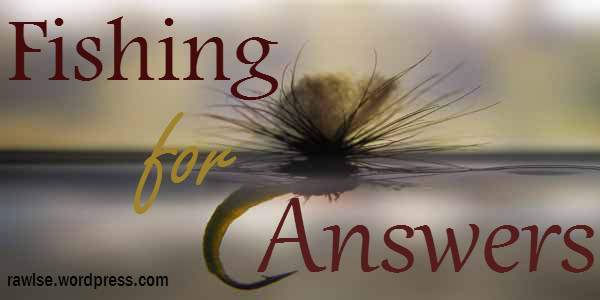Sometimes an author has questions to ask, and the best people to answer those questions are You! Fishing for Answers is where a question is asked and we then debate about the answer in the comments below. We look forward to hearing your advice, tips and thoughts.
Question: For a novel, would you write numbers like 2000 as “two-thousand” or “2000”?
How about “53” or “fifty-three”?
Give us your opinion and comment. Let’s discuss!
Do you have a question you would like asked on Fishing for Answers? Place it in the comments below.
For more writing and fantasy fun, follow the mailing list, and blog! Also find E. Rawls on Facebook, Tumblr, Google+, andTwitter. 🙂


In my academic writing for school the guidelines have always been that numbers under one-hundred are written out, and numbers over that can be written as digits. I think I live under that principle in most of my writing, although sometimes I think I’d rather spell out even large numbers.
LikeLiked by 1 person
I am tempted to spell out certain large numbers, too. But like you said, I think academically large numbers are supposed to be digits.
LikeLike
I’d personally write the numbers out, especially if they’re used in conversations. The only number I wouldn’t necessarily write out would be the year number. 1840, or 2015, for example.
LikeLiked by 2 people
Year numbers, I agree, should be digits. I’m conflicted about other large numbers, but I guess it’s more important that a writer stick with what they prefer and be consistent throughout a book.
LikeLiked by 1 person
If they’re larger than a hundred, I’d probably err on the side of writing numbers in numerals. …But for NaNoWriMo, every word counts towards the fifty thousand word goal. 😀
LikeLiked by 1 person
For books, yeah, I’ll go with digits or numerals. But, oh yes, every bit counts for NaNoWriMo, I totally agree with writing it all out! Good way to get in those final words for the word count! 😀
LikeLiked by 1 person
I generally write the numbers as words. I think there’s a rule about it, but I can’t quite remember what it is.
LikeLiked by 2 people
Yes, I think the rule is: below 100, words are spelled out, but above 100, words are written as digits. But it’s probably best that a writer choose and stick with what feels best for them, I think. 🙂
LikeLiked by 1 person
I agree. 🙂
LikeLiked by 1 person
From my previous investigations, any number less than ten should be worded, and over that should be numerical. That is, I believe, what I read.
I think it would, as most of the so-called rules for writing, depend largely on both the Author and the intended audience. If you are more comfortable writing the numbers in words, by all means do it. (This being my personal opinion.)
LikeLiked by 1 person
I agree, the author should choose what they are comfortable with. I think the official rule is that anything below 100 should be spelled out, but I don’t think all authors do that. I think I will, just because I’m more comfortable with it, but it’s not a rule set in stone. As long as an author is consistent with which they choose.
LikeLiked by 1 person
While looking at a submission page, I noticed that they have specific instructions concerning this.
From putting quotation marks always on the outside of the punctuation to never writing “alright” (they want all right, all the time), as well as their instructions on numerals. A copy-and-paste:
“NUMERALS
— We spell out one, two, three, four, five, six, seven, eight, nine and ten. Everything after that is numerals.
— When referencing time, say 3:00 p.m. (or a.m., as the case may be.) Or 3:20, etc. Do not spell out numerals.(As in three o’clock — please don’t do it that way.)”
They have other guidelines, too, of course.
http://whortleberrypress.com/stylebook.html
I guess the point is, as most writers know, make sure, above all else, to check submission guidelines before making the decision permanent. Alright? Er, um, “all right?”
LikeLiked by 1 person
True, submission guidelines for each publisher should be checked over first before sending. I’ve seen other books use things like “three o’clock” and fifty-two etc, so it probably depends on if, and who, you’re submitting your MS too, or if you’re indie publishing.
LikeLiked by 1 person
For me, it depends on the context. I usually write out numbers as words, but use digits for dates. Also, in models/names, like “The Nimbus 2000” in Harry Potter. But if I were writing an age, “He is twenty-four,” etc., I always write it out. I believe Strunk & White talk about this in their stuffy (but useful) writing guide, :), if you want the grammar.
LikeLiked by 1 person
Context is important. Like you said, I like dates and model names written as digits. For regular numbers below 100, I’ll write them out. 🙂
LikeLike
As much as it pains me to, I spell out the numbers. It’s so much easier to type or write in 2000 instead of spelling, but countless middle school grammar exercises have taught me otherwise. 😛
LikeLiked by 1 person
Haha, it really is a pain! 😛 For me, I’m going with the: if it’s below 100 I’ll spell it out, otherwise it’s digits! 😀
LikeLiked by 1 person
Chicago Manual of Style advises spelling out whole numbers from zero to one hundred, as well as whole numbers like “seven hundred” or “ten thousand.” Numbers written as digits include ordinals (1st, 2nd), years, percentages, large amounts of money, and page numbers and references. Numbers that begin a sentence are always spelled out.
Overall, I don’t think any readers will notice a problem as long as you’re consistent with your numbering rules.
LikeLiked by 1 person
Good points you brought out here, Amy! When beginning a sentence, a number should be spelled out. And whole numbers, even if above 100, can be written out. I might prefer two thousand to 2000, in that case. And as always, consistency is key!
LikeLike
Yes, always write out numbers that start a sentence, or revise so the number appears later if it’s too awkward. Glad this helped! 🙂
LikeLiked by 1 person
It’s hard to to CMOS, although I’ve heard you spell out everything twenty and below.
HOWEVER, in dialogue, every number is spelled out, including dates. You write it the way people would say it. So nineteen eighty four and two thousand and one. 🙂
LikeLiked by 1 person
Thank you for giving your thoughts on the subject, Cathleen! I agree that dialogue should be treated differently. 🙂
LikeLike